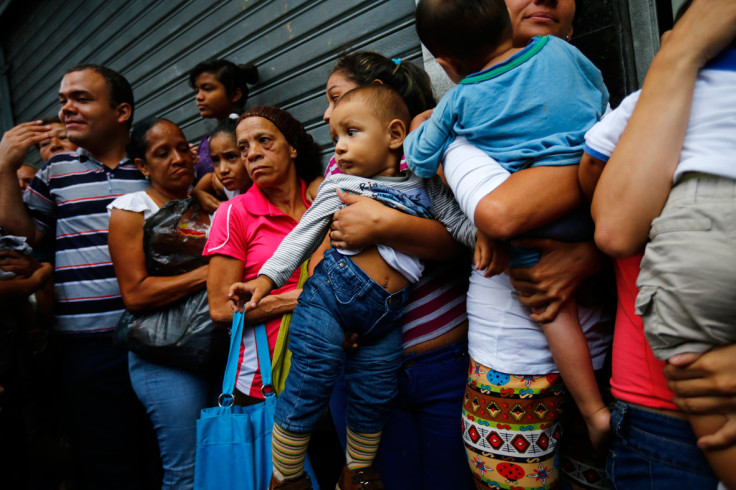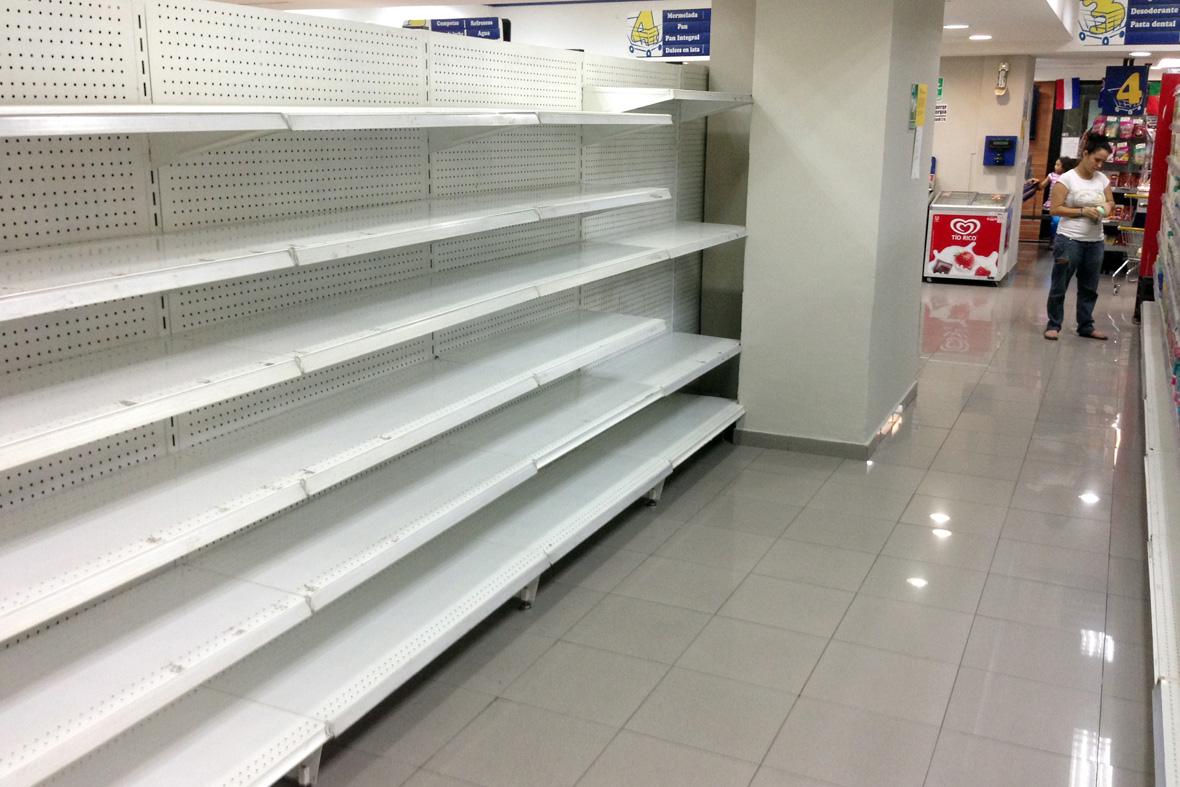The latest job opportunity in crisis-hit Venezuela: Standing in supermarket queues
Resourceful entrepreneurs in crisis-hit Venezuela have hit upon a profitable employment opportunity – standing in queues.
The job involves standing outside shops for hours, dodging or bribing police, and then selling the coveted spot at the front of the huge queues.

Unprecedented shortages of basic goods and panic buying mean demand for queue-sitters is high and the pay is reasonable.
"It's boring but not a bad way to make a living," said a man holding a spot near the front of a long line outside a state supermarket in Caracas.
Luis can do this two or three times a day, earning about 600 bolivars each time. This is worth about £62.50 ($95) at the official exchange rate, but just £2.30 ($3.50) on the black market.





A sense of desperation is palpable in Caracas, where some schools advised parents to pack toilet paper in their children's backpacks and at least one executive-class hotel told guests to bring their own detergent if they want laundry services.
Prices in the state-run Bicentenario supermarket are often four times lower than in private shops, thus many Venezuelans are prepared to wait hours in line for bargains.
"If you want 20 things, you have to wait in 20 lines," said a man at a shop that ran out of its daily supply of cornflour in just 30 minutes.
There is a heavy police presence at many shops and increasing restrictions on sales, with some people receiving stamps on their arms or only allowed to shop on a certain day depending on the number of their ID card.
Some families send elderly relatives to hold spots for them, while others take babies and use them as an excuse to jump to the front.



Some people leaving supermarkets with far more products than one family could need acknowledged they were for re-sale. Many goods turn up at twice the price in the huge Petare slum.
There have been scores of arrests of people hawking goods across Venezuela's borders with Colombia and Brazil, where they are sold for a large mark-up.
The government says media exaggeration of shortages and panic buying driven by unfounded rumours are behind chaotic scenes at supermarkets and pharmacies around the nation.
"If there was no food, you wouldn't be seeing lines!" said Carlos Osorio, the vice-president for food, adding that in 15 years of socialism per capita annual meat consumption rose from 11 to 26 kg.
© Copyright IBTimes 2025. All rights reserved.






















